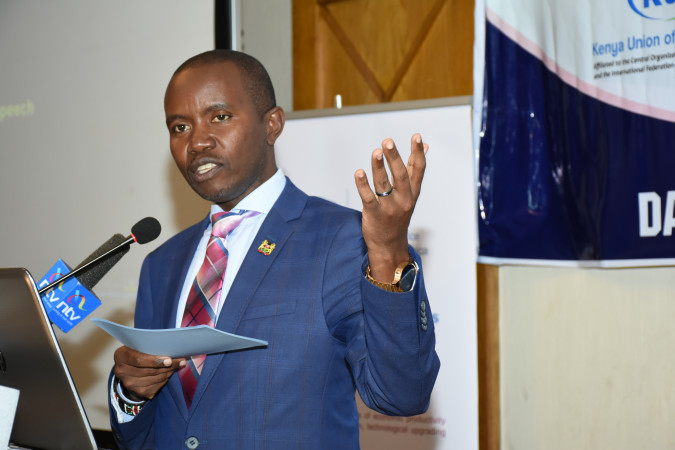Kenyans told to brace for cyber crime surge

The government yesterday warned of a surge in cybercrime in the next two years as the country navigates through the Building Bridges Initiative (BBI) referendum process and General Election, a development expected to have a toll on economic growth.
The warning by the Cabinet Secretary for Information, Communication and technology (ICT) Joe Mucheru comes in the wake of reports of a spike in cyber threats detected by the Communication Authority of Kenya’s (CA) National Computer Incident Response Team Coordination Centre (KE-CIRT/CC), between September and December 2020.
Mercy Wanjau, Acting Director-General of CA said the regulator’s response team recorded a staggering 56 million cyber threats in the period under review, with Mucheru urging it to boost its detection and monitoring capacity to mitigate the risk.“
A majority of these threats were malware attacks (46 million), followed by Web applications attacks at 7.8 million while 2.2 million were distributed denial of service attacks,” Wanjau yesterday during the launch of a portal that will shield children from unsafe content when they access the internet.
The attacks come in the form of malicious software to gain access to sensitive information, others allow criminals to gain access to databases in order to churn sensitive data, and also distributed denial of service attacks in order to disrupt the normal traffic of servers, among others.
Wanjau said Kenyans must increase alert levels to cushion the economy whose productivity is driven by digital technologies.
The 2020 National Economic Survey estimates that the value of output in the ICT sector rose by 10.3 per cent in 2019.
During the same period, intermediate consumption and value addition by the sector grew by 14.1 per cent and 1.1 per cent to Sh310.6 billion and Sh116.4 billion respectively.
These realities come even as latest sector reports indicate that the country lost approximately Sh28.5 billion through cyber attacks in 2019.
However, the data for 2020 is not yet verified, according to William Makatiani, Chief executive of Serianu Ltd, a Pan-African based Cybersecurity and business consulting.
Social media
The online presence through social media has of late increased citizen’s participation in politics, with data by the regulator indicating that as of September 30, 2020, the number of active mobile subscriptions (SIM Cards) stood at 59.8 million from 57 million subscriptions reported in June 2020.
The communications authority attributes the substantial growth to smartphones device financing service campaign run by Safaricom dubbed “Lipa Mdogo Mdogo” and was aimed at acquisition of new customers.
Ernest Agina, a Cyber Security expert working with the Africa Wildlife Foundation agrees with Mucheru, and says the threat can be manifested in “fake news” and “fake profiles,” the former which gained unprecedented attention during the tenure of the immediate former US President Donald Trump in 2016.
Similarly, Agina said, the threat of manipulating the Independent Electoral and Boundaries Commission (IEBC) voter register is real, since Kenya does not have an online voting system.
“Since we do not have an online voting system, elections can be influenced by deleting people from other areas though I believe IEBC has safeguards against this,” said Agina, a matter that can brew political tension.
According to Agina, the increasing use of Social Media as a campaign platform, especially where authorities muzzle the mainstream media on complains of “fake news” or news that they consider unfavourable by bloggers, like was the case of the Tanzanian and Ugandan General Elections can also forment political tension.















